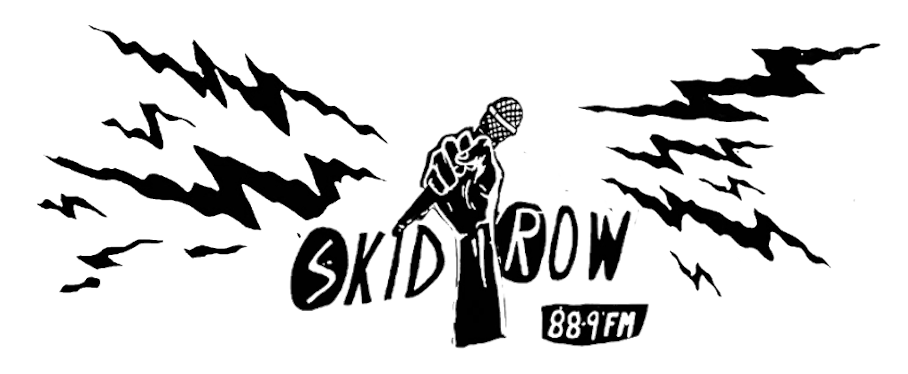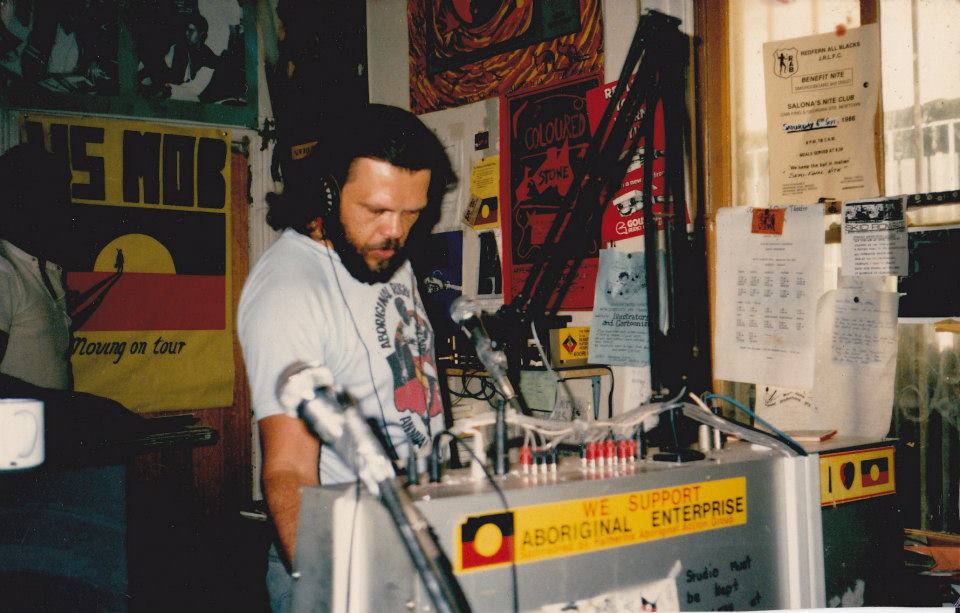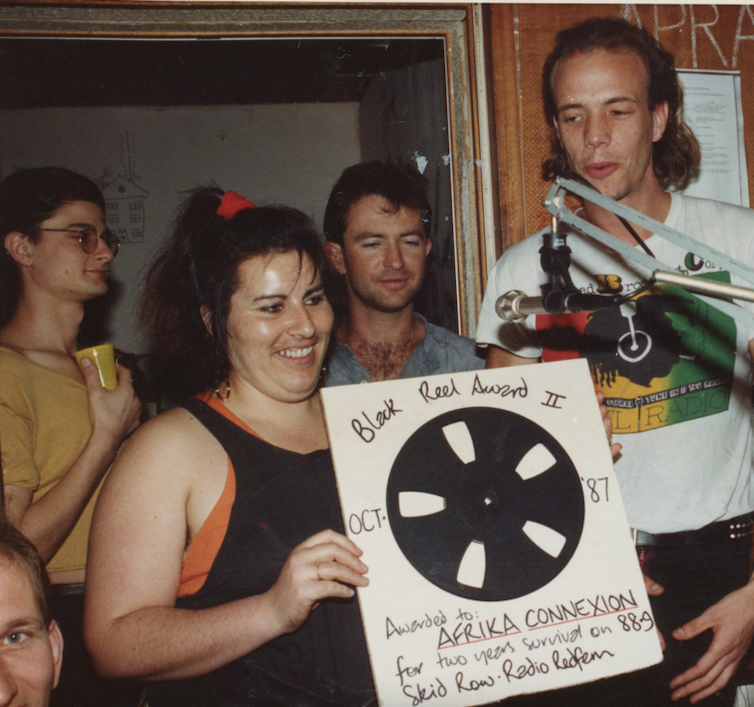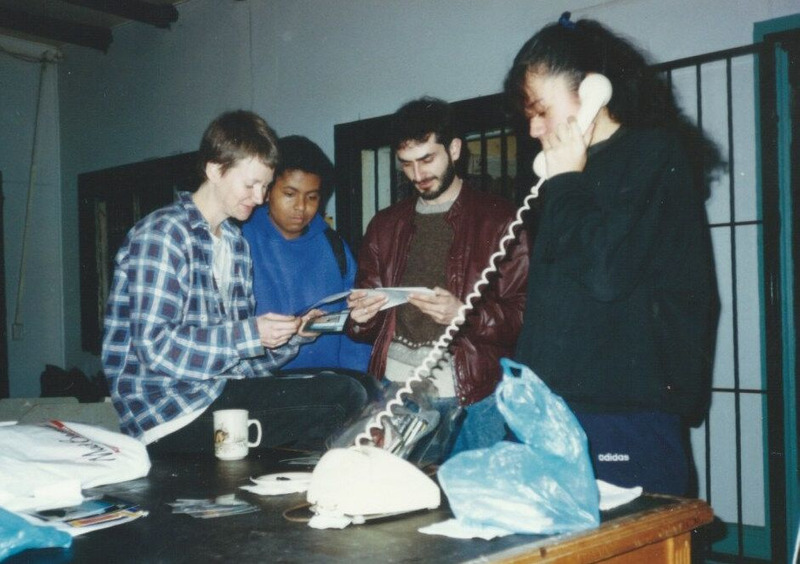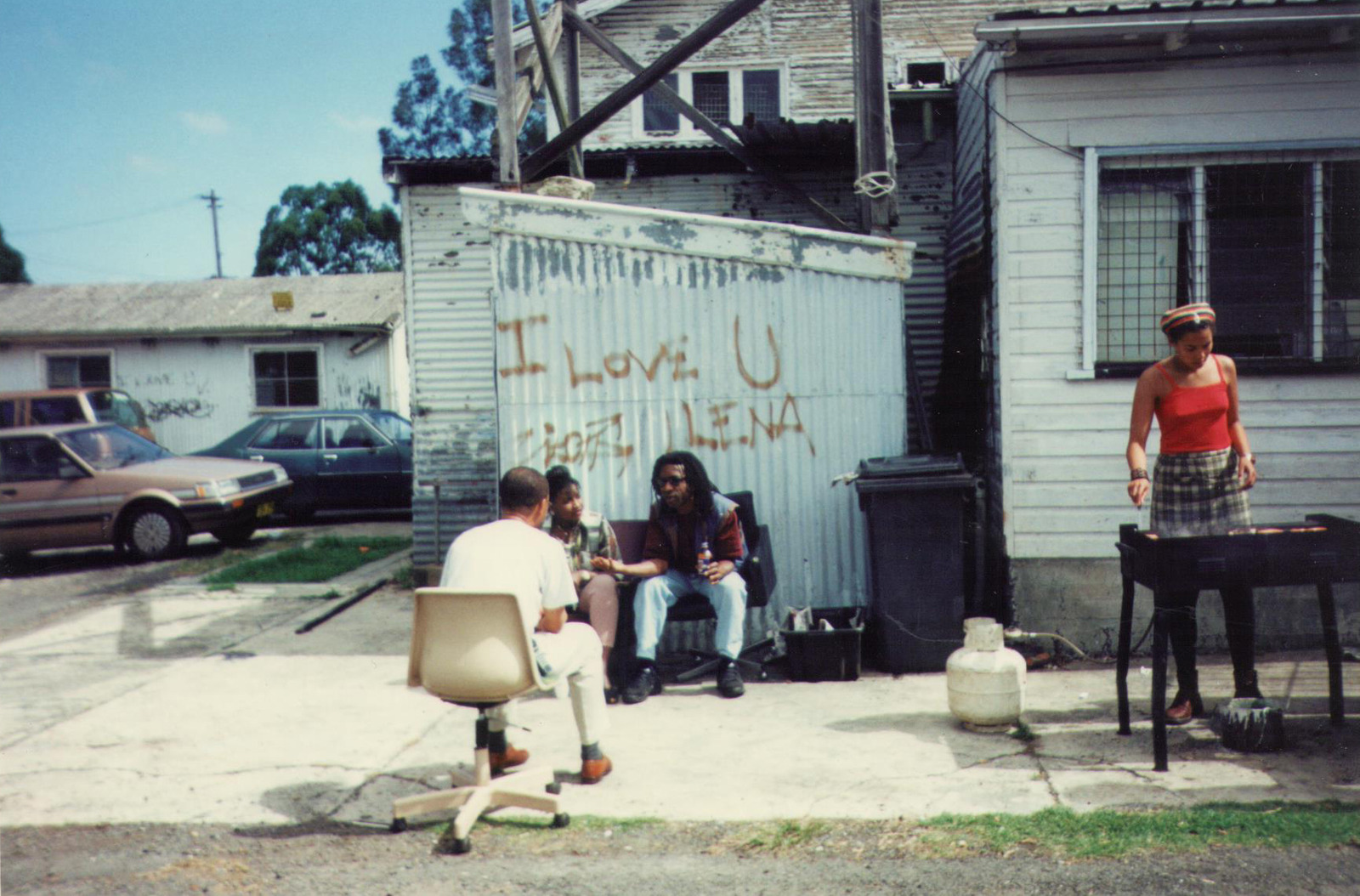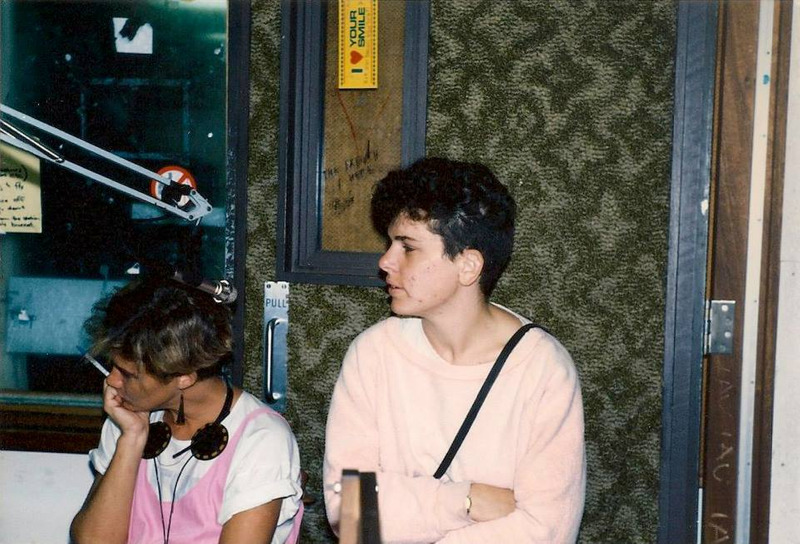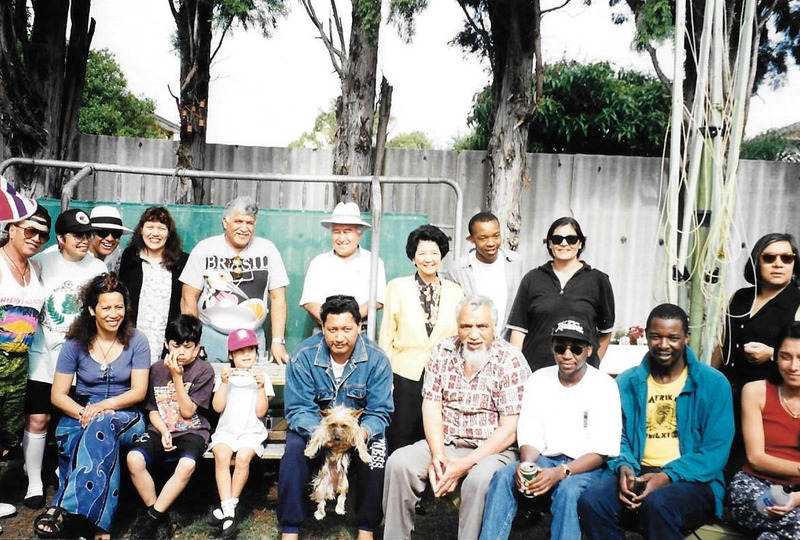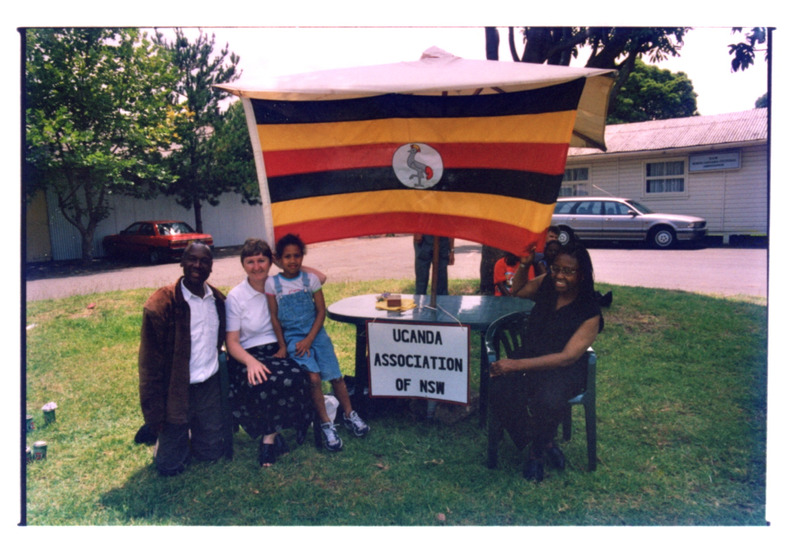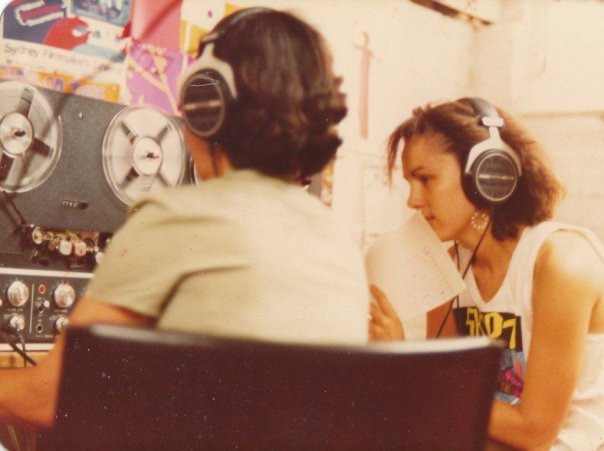Radio Skid Row is an activist, grassroots community radio station that has been broadcasting for 40 years in Warang/Sydney. We have over 40 programs broadcasting in 17 languages speaking about everything from disability justice to workers rights, playing reggae, hip-hop and music from around the world as well as from our community.
We currently have over 80 broadcasters, 3 part-time staff, 8 board members and countless hard-working volunteers whose passion for the power of radio is what has kept us going. We broadcast on 88.9 FM and stream online via our website. Listeners can access our archive on sound cloud.
Our Board
The board works in sub-committees to support key projects and the strategic operations of Skid Row. These voluntary board members are made up of community members and broadcasters.
President: Lima Peni
Secretary: Lauren Booker
Treasurer: Nicola Joseph
Directors: Dorothy Tuagalu, Simeon Georgievski, Magdalene Konneh, Binowee Bayles, Paul Kelly, Graham Davis King
Our Staff
Operations & Ethnic Programs Coordinator: Raúl Hernandez | Responsible for the operations of the station including Work Health and Safety, Transmission and Logistics. As the Ethnic Programs Coordinator Raúl also supports and manages the 17 multilingual community programs and teams. Email raul@skidrow.com.au
Accounts Officer: Irene Shuele | The Accounts Officer is responsible for the financial operations of the station including projects, operations and ensuring Skid Row operates within its budget. Email: accounts@skidrow.com.au
Communications Officer: Ellie Violet | Communications Officer is responsible for all internal and external communications at the station. Email: comms@skidrow.com.au
Fundraising Coordinator: Jack Poppert | The Fundraising Coordinator is responsible for planning, running and coordinating the annual fundraiser, subscriber drive and business sponsorship. Email: support@skidrow.com.au
Our Broadcasters
Our broadcasters come from all walks of life, ages, countries and professional backgrounds. We have professional DJs and long-time skid-rowers who’ve been broadcasting since the early days; young people playing the music they love as well as a range of current affairs shows discussing local and international news.
Our broadcasters are largely volunteers who generously give of their time and talents to make the Radio Skid Row what it is today. Where broadcasters are paid it is through project grants. Radio Skid Row works hard to offer our broadcasters training, support and opportunities. Find out more about our broadcasters on our Shows page.
Our Mission
(from the 2024-2027 Strategic Plan)
Radio Skid Row remains committed to its mission of being a media organisation that promotes social justice, civil and human rights and equal opportunity for those most marginalised in the community, including First Nations and other marginalised groups.
Our Strategic Plan 2024-2027
2022/2023 Annual Report
In the Beginning
Radio Skid Row began with test broadcasts on a landline to Long Bay Jail. It first went to air as a fully licensed station in September 1983, broadcasting to the most marginalised in the community. Originally established by a group of welfare workers, Radio Skid Row, the first broadcasters included members of the Indigenous community, the Communist Party, migrant workers committees, squatters and housing organisations, prison activists, environmentalists and women and queer groups just to name a few. There were also many musicians and artists involved in the station which meant that Sydney’s live music scene finally had a community radio station to support it. Radio Skid Row ran live music nights at the Graphics Arts Club, the Trade Union Club, the Yugal Soccer Club and the Phoenician Club to name a few.
However, the conservative management was not happy with the direction the Radio Skid Row was taking and in June 1984 they boarded up the station and locked out the community in an attempt to take back control. It didn’t work and after six weeks the management was ordered to reopen the station and to open its membership to everyone involved, it took five months of negotiations, campaigning and persistence for the workers to finally sack the first management board in November 1984 and take over the running of the station. From then, the station grew into one of the most significant forces on the community airwaves in Australia.
It was obvious from the beginning that Radio Skid Row was going to be unique. For a start, Skid Row allocated an initial 10 hours of airtime to the local Koori community. These programs grew in hours and eventually became known as the Radio Redfern programs broadcasting 30 hours a week. An Indigenous studio was established in a squatted terrace house in Cope Street Redfern. The partnership between Indigenous and non-Indigenous broadcasters was so strong that the station called itself the Radio Skid Row-Radio Redfern Connexion.
Activist Roots
In 1988, during the Bicentennial protests, the Radio Redfern studio managed to coordinate the crowds descending on Sydney and broadcast the protests to the rest of Australia. A group of Brisbane Murris who were helping out with the broadcasts were so inspired by what they saw that they decided to set up their own station in Brisbane. 4AAA Murri Country grew out of this idea and was managed by Tiga Bayles, one of the founding members of Radio Redfern and a former chairperson of Radio Skid Row’s board.
“The Radio Skid Row-Radio Redfern experience gave me the passion and commitment to continue working in the development of Indigenous media in Australia. At Radio Redfern, I realised the power of radio in breaking down barriers and developing understanding in the community. Most importantly, we were able to create a space that was Indigenous-owned and controlled”’ – Tiga Bayles.
Radio Redfern later evolved into Koori Radio, which continued to broadcast on Radio Skid Row until they applied for and accepted their own city-wide license in 2001. In 2022, the National Film and Sound Archive inducted recordings from the 1988 protests into the Sounds of Australia Collection recognising the historical importance of the broadcasts.
Supporting Diverse Communities
Ethnic broadcasting has always been high on the agenda for Radio Skid Row.
Including the early Ethnic broadcasters who built their own studio at Leichhardt. The Migrant Workers Committee, who made up most of the workers from the Eveleigh railway workshops (now Carriageworks) , who were fixtures on air after knocking off from their shifts. These broadcasters were also active members on the board.
When Koori Radio was established and Indigenous broadcasters left Radio Skid Row to broadcast on their own station, Radio Skid Row opened up the airwaves to newly arrived and small and emerging communities. This saw the emergence of Pacific Islander and African groups on the station. The station supported African communities by organising the first African and West Indian Festivals in Sydney, Pacific Wave programs took over the old Radio Redfern time slots and soon the station’s ethnic programming had grown to almost 50 hours a week.
Radio Skid Row Today
Present day Radio Skid Row continues to create radical radio that provides a platform for voices of Indigenous and ethnic communities, young people, Union workers, refugees and other minorities who aren’t adequately represented in mainstream media. We deliver accredited training courses and group workshops that provide opportunities to increase broadcasters skill sets and knowledge. The station is run by a board of directors, a handful of paid staff members and broadcasters who volunteer their time in creating their programs and keeping the station running.
Radio Skid Row continues to be an important outlet for diverse groups of people to share their love of music while also telling the stories that would otherwise go unheard. Our programming schedule includes 17 community languages including Macedonian, Spanish and many Pacific Island and African language programs. Afrika Connexions which started as an anti-apartheid program has continued to broadcast for almost 40 years. Radio Skid Row also airs Himalayan Nepali, the first and only Nepali program in Sydney that has run for over 20 years.
